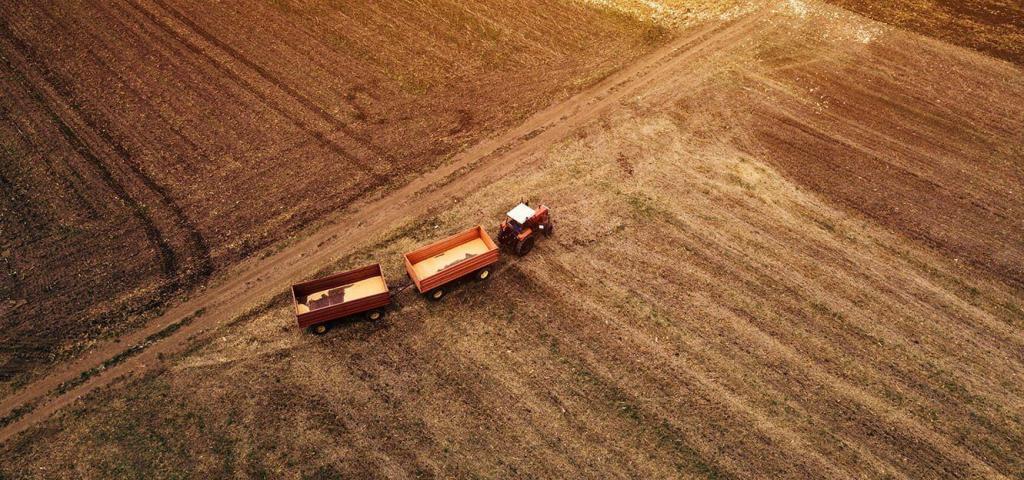Understanding Agri Logistics: The Backbone of the Agriculture Industry
What is agri logistics and why is it so important? This article breaks down the complex process of getting agricultural products from the farm to your table.
What is agri logistics?
Agri logistics is the process of planning, implementing, and controlling the movement and storage of agricultural products from the farm to the consumer. It involves a range of activities, including transportation, storage, packaging, and distribution, all of which are designed to ensure that fresh and safe food is available to consumers. Agri logistics is a critical component of the agriculture industry, as it helps to ensure that farmers can get their products to market and that consumers can access the food they need.
The importance of agri logistics in the agriculture industry.
Agri logistics plays a crucial role in the agriculture industry by ensuring that agricultural products are transported, stored, and distributed efficiently and effectively. Without agri logistics, farmers would struggle to get their products to market, and consumers would have limited access to fresh and safe food. In addition, agri logistics helps to reduce waste and spoilage, which can have a significant impact on the environment and the economy. Overall, agri logistics is the backbone of the agriculture industry, and its importance cannot be overstated.

The different stages of agri logistics.
Agri logistics involves a complex process that includes several stages. The first stage is harvesting, where crops are harvested from the farm. The second stage is transportation, where the harvested crops are transported to storage facilities or processing plants. The third stage is storage, where the crops are stored until they are ready to be transported to their final destination. The fourth stage is processing, where the crops are processed into finished products. The final stage is distribution, where the finished products are transported to retailers or directly to consumers. Each stage of agri logistics is critical to ensuring that agricultural products are delivered efficiently and effectively.
Challenges faced in agri logistics and how to overcome them.
Agri logistics is a complex process that involves several challenges. One of the biggest challenges is the transportation of agricultural products over long distances. This can be particularly challenging in developing countries where infrastructure is poor and roads are often in poor condition. Another challenge is the storage of agricultural products, particularly perishable items like fruits and vegetables. To overcome these challenges, agri logistics companies need to invest in modern transportation and storage facilities, as well as advanced technologies like refrigeration and tracking systems. Additionally, partnerships between farmers, logistics companies, and retailers can help to streamline the agri logistics process and ensure that agricultural products are delivered efficiently and effectively.
The future of agri logistics and its impact on the agriculture industry.
The future of agri logistics is bright, with advancements in technology and infrastructure making it easier and more efficient to transport and store agricultural products. This will have a significant impact on the agriculture industry, as it will allow farmers to reach new markets and increase their profits. Additionally, it will help to ensure that consumers have access to fresh, high-quality agricultural products year-round. However, it is important for agri logistics companies to continue to invest in sustainable practices and reduce their environmental impact, as the agriculture industry plays a significant role in global greenhouse gas emissions.
Why Transportation is Key to Successful Agri Logistics
Transportation is a critical component of agri logistics, as it plays a vital role in the movement of agricultural products from farms to consumers. Without efficient transportation, the agricultural supply chain would be disrupted, leading to delays, spoilage, and increased costs. In this article, we’ll explore the importance of transportation in agri logistics and how it impacts the industry as a whole.
The Importance of Timely Delivery.
Timely delivery is crucial in the agricultural industry, as many agricultural products have a limited shelf life and need to be transported quickly to maintain their quality. Delays in transportation can lead to spoilage, which can result in significant financial losses for farmers and other stakeholders in the supply chain. Additionally, timely delivery ensures that products reach consumers when they are in demand, which can help to maximize profits for everyone involved in the process.
The Role of Technology in Transportation.
Technology plays a crucial role in transportation in the agricultural industry. GPS tracking systems, for example, can help to optimize routes and reduce delivery times, while temperature monitoring systems can ensure that products are transported at the correct temperature to maintain their quality. Additionally, electronic data interchange (EDI) systems can help to streamline communication between different stakeholders in the supply chain, reducing the risk of errors and delays. As technology continues to evolve, it is likely that transportation will become even more efficient and effective in the agricultural industry.
The Impact of Weather and Seasonality.
Weather and seasonality can have a significant impact on transportation in the agricultural industry. For example, extreme weather events such as hurricanes, floods, and snowstorms can disrupt transportation routes and cause delays in the delivery of products. Additionally, seasonal changes can affect the availability of certain crops and the demand for transportation services. It is important for agri logistics companies to have contingency plans in place to mitigate the impact of weather and seasonality on transportation.
The Need for Proper Handling and Storage.
In addition to efficient transportation, proper handling and storage of agricultural products is also crucial for successful agri logistics. This includes maintaining the quality and freshness of products during transportation and storage, as well as ensuring compliance with food safety regulations. Proper handling and storage can also help to reduce waste and increase profitability for agri logistics companies. It is important for companies to invest in the necessary equipment and training to ensure proper handling and storage of agricultural products.
Collaboration and Communication in the Supply Chain.
Collaboration and communication are key components of successful agri logistics. Effective communication between all parties involved in the supply chain, including farmers, transporters, processors, and retailers, can help to ensure that products are delivered on time and in good condition. Collaboration between these parties can also help to identify and address any issues that may arise during transportation or storage, such as delays or quality concerns. By working together, agri logistics companies can improve efficiency and reduce costs, ultimately leading to increased profitability.
How to Choose the Right Agricultural Transportation Provider for Your Business
Don’t settle for just any agricultural transportation provider.
Choosing the right agricultural transportation provider is crucial for any business in the agriculture industry. With so many options available, it can be overwhelming to know where to start. This guide will provide you with the key considerations to keep in mind when selecting a transportation provider for your agricultural needs.
Determine Your Transportation Needs.
Before you start looking for a transportation provider, it’s important to determine your specific transportation needs. Consider factors such as the type and quantity of products you need to transport, the distance and frequency of transportation, and any special requirements or regulations that need to be followed. This will help you narrow down your options and find a provider that can meet your specific needs.
Research Potential Providers.
Once you have determined your transportation needs, it’s time to start researching potential providers. Look for companies that have experience in transporting agricultural products and have a good reputation in the industry. Check their safety record and make sure they have all the necessary licenses and insurance. You can also ask for references from other businesses in the industry to get an idea of their reliability and customer service.
Check for Proper Licensing and Insurance.
When choosing an agricultural transportation provider, it’s important to ensure that they have all the necessary licenses and insurance. This includes a valid commercial driver’s license, liability insurance, and cargo insurance. Without these, you could be held liable for any accidents or damages that occur during transportation. Make sure to ask for proof of these documents and verify their validity with the appropriate authorities. It’s better to be safe than sorry when it comes to protecting your business and products.
Consider the Provider's Reputation and Experience.
In addition to licenses and insurance, it’s important to consider the reputation and experience of the agricultural transportation provider. Look for reviews and testimonials from other businesses in the industry to see if they have a track record of delivering goods on time and in good condition. You may also want to ask for references and speak directly with other businesses who have used their services. A provider with a good reputation and years of experience in the industry is more likely to provide reliable and efficient transportation for your agricultural products.

Evaluate Pricing and Customer Service.
When choosing an agricultural transportation provider, it’s important to consider both pricing and customer service. While you don’t want to sacrifice quality for a lower price, you also don’t want to overpay for services that could be obtained elsewhere for less. Look for providers that offer competitive pricing while still maintaining high standards of service. Additionally, consider the level of customer service provided by the provider. Will they be available to answer questions and address concerns in a timely manner? Will they work with you to create a customized transportation plan that meets your specific needs? These are all important factors to consider when evaluating pricing and customer service.
For more information on Agri Logistics and how Nu-Era can help to ensure sure you’re not left in the dust, we encourage you to contact our team.
